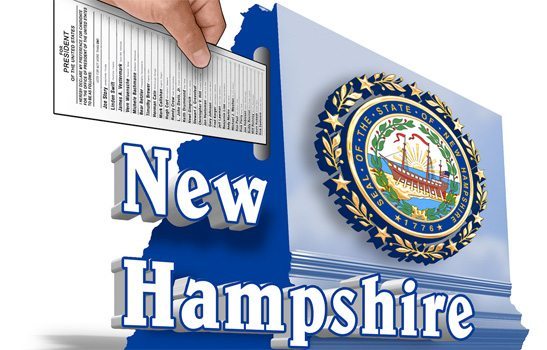Although the New Hampshire Primary is scheduled to be held on the second Tuesday in March, it hasn’t been held in March since back in the ’70s. New Hampshire is proud to hold the first Presidential Primary Election every four years. By state law, the New Hampshire Secretary of State has the authority to schedule the primary as early as is needed to ensure it will be the “first in the nation.”
Occurring one week after the Iowa Caucuses, the New Hampshire primary is considered to be another important litmus test that can make or break a candidate. Like Iowa, winning isn’t everything, and outperforming expectations are a better gauge of success. In the modern era, it is almost as common for the New Hampshire second place finisher to go on to be their party’s nominee as it is for the winner.
At times, this process can seem silly. In New Hampshire this year, Mitt Romney won the Primary and declared victory. Ron Paul took second place, and then declared victory. Jon Huntsman got third and also declared victory. The only people not declaring victory were claiming either, “I didn’t campaign in New Hampshire so it doesn’t matter,” or “This result won’t make me drop out of the race.”
So the Republican Primary after New Hampshire has the same plotline; Governor Mitt Romney is the front-runner, and the rest of the candidates are competing to see if anyone of them can rise up out of the pack to be the sole contender against him. Their problem is that they are already running out of time.
Rick Santorum barely missed winning in Iowa by eight votes and seemed poised to be that main contender. One week later in New Hampshire, he finished in fifth place. The talk-show pundits barely mentioned him in the post-primary analysis. It is a good example of how these early primaries can build you up and then break your heart.
Romney’s win is impressive because he is the first non-incumbent Republican to win both Iowa and New Hampshire.
Next up in the process is the South Carolina Primary on January 21 and then the Florida Primary on January 31. If Romney wins South Carolina, he will pretty much be unstoppable. The race for second place is meaningless, and then there is even more good news for Romney. If he does well in South Carolina and Florida, the series of primaries that follow in February are Maine, Nevada, Colorado, Minnesota, Arizona and Michigan. Of those six, Romney won five of them in 2008, only losing to John McCain in Arizona, McCain’s home state.
The real story to keep watching is the “nasty” factor. Newt Gingrich has been very vocal about the attacks that have come at him from Romney and his supporters. There are some very hard feelings between these two, and Gingrich is vowing to fight. He is reported to have 3.5 million dollars to invest in the South Carolina Primary and is expected to spend a good chunk of it going after Romney. The Republican attacks on each other could be extremely harmful for the eventual nominee. The mud they sling at each other doesn’t go away and is being seen by the president and his campaign team. It has happened before. In 1988, republican nominee George Bush Sr. defeated democrat nominee Michael Dukakis. A work furlough program that Dukakis supported as Governor was the most incriminating attack against him and inspired the infamous Willie Horton television ads. This issue was originally raised by then candidate Al Gore in the Democratic Primaries. The Republicans remembered the issue and used it to their advantage.
The Republican contest hasn’t changed much in the last twelve months, but the hopes are fading for an anti-Romney candidate to rise up and unify the far-right.
2012 New Hampshire Primary Results:
| Mitt Romney | 97,043 | 39.3% |
| Ron Paul | 56,403 | 22.8% |
| Jon Huntsman | 41,669 | 16.9% |
| Newt Gingrich | 23,271 | 9.4% |
| Rick Santorum | 23,118 | 9.4% |
| Rick Perry | 1,752 | 0.7% |
| Michele Bachmann | 349 | 0.1% |
| Other | 3,238 | 1.3% |




